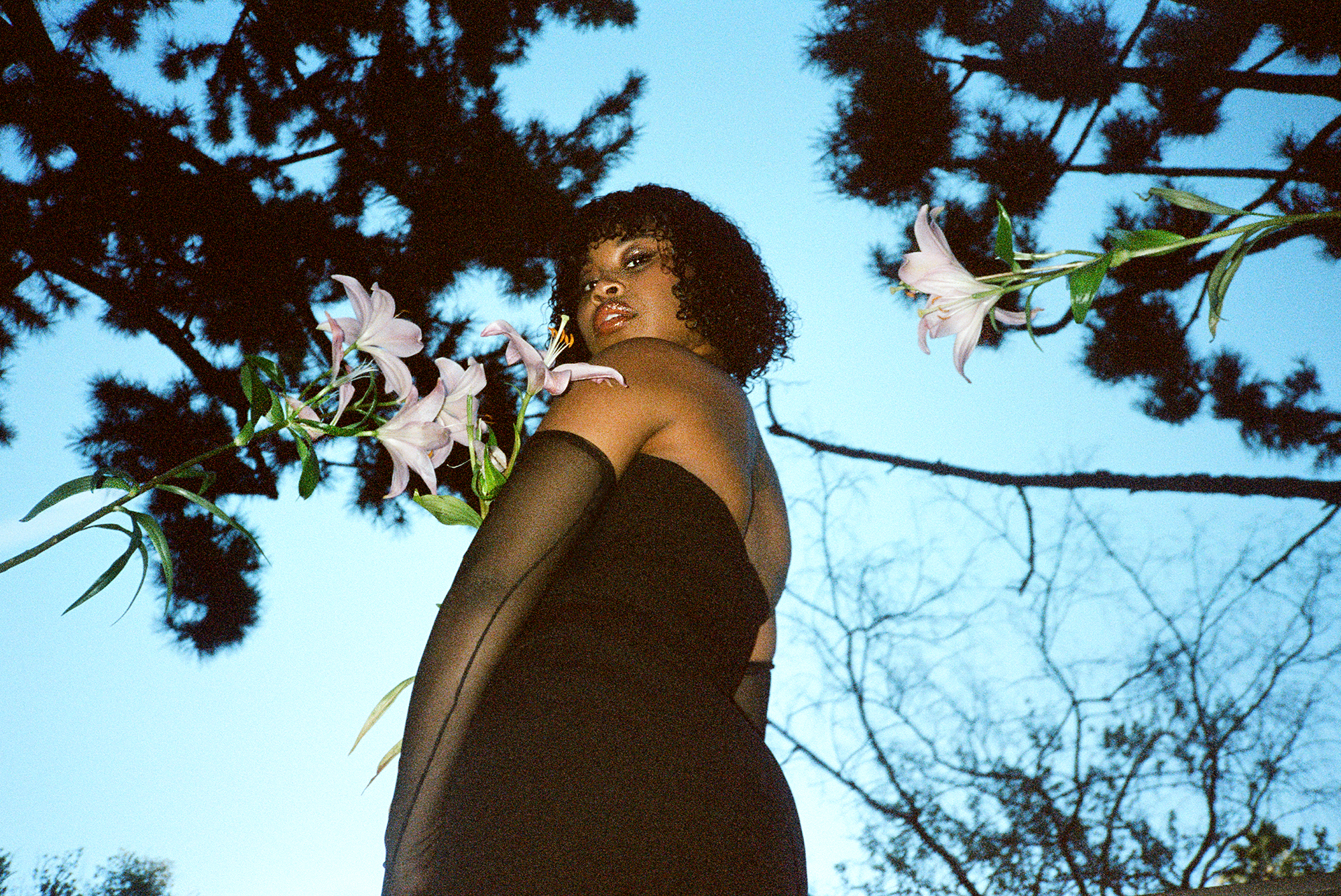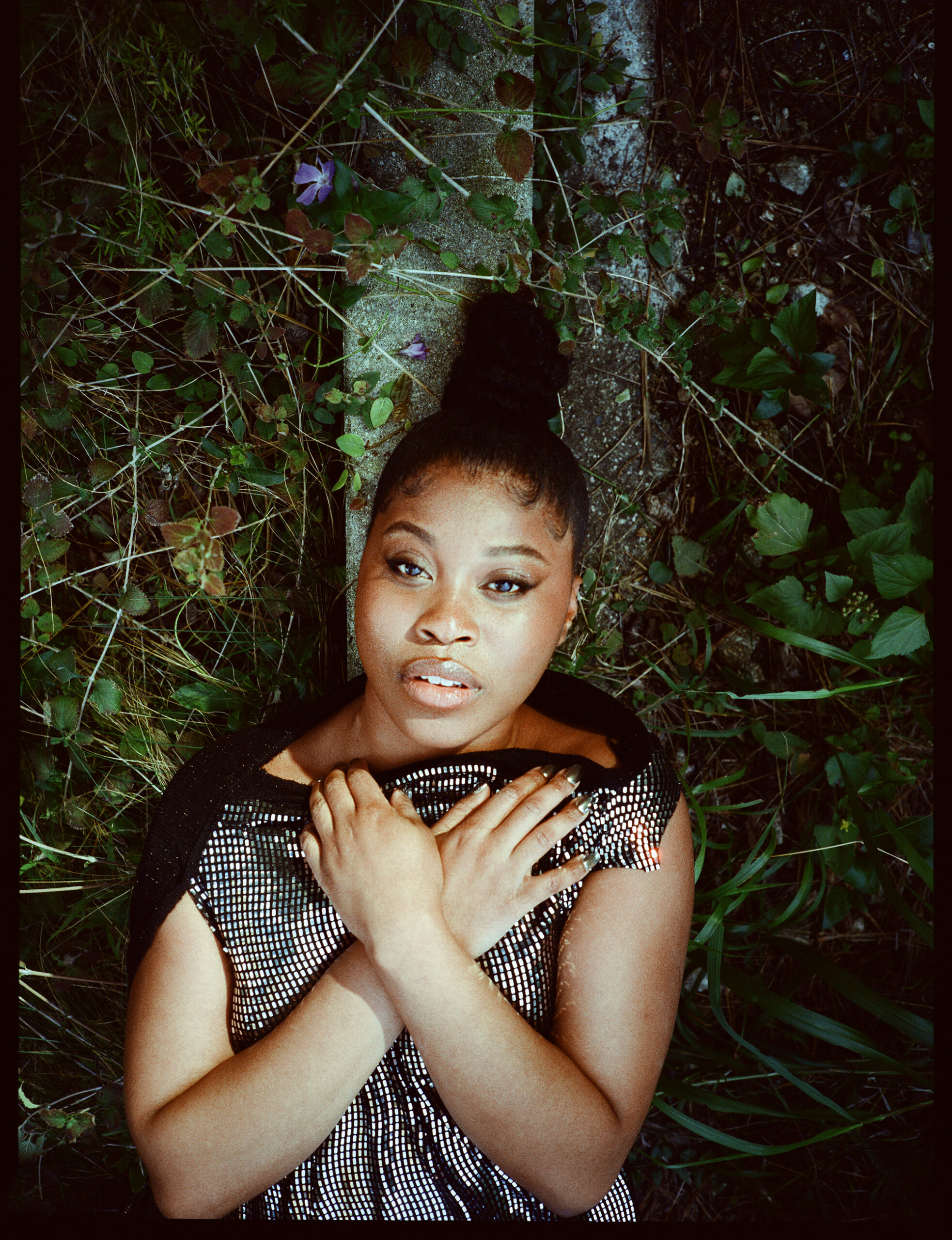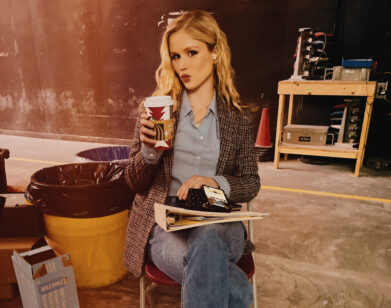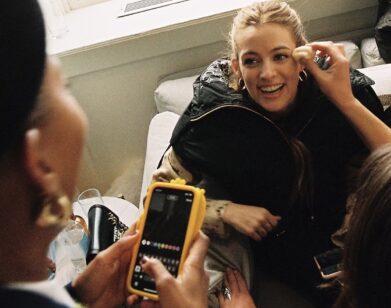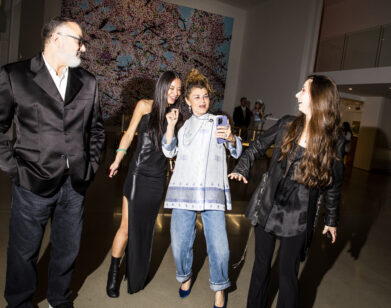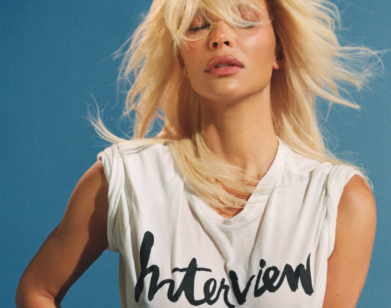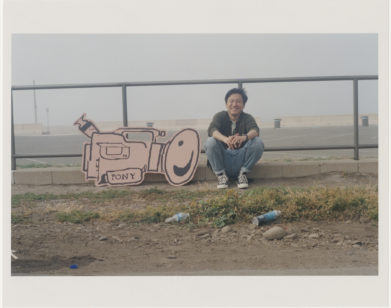stan
Dominique Fishback Takes Keke Palmer Inside the World of Swarm
Dominique Fishback and Keke Palmer’s conversation was in question when three days before, Palmer announced the birth of her son. But Palmer, who had already seen Fishback’s terrifying and transcendent performance as a woman dangerously obsessed with a pop star in Donald Glover and Janine Nabers’s Amazon Prime series Swarm, insisted on rescheduling their call to the following week.
———
MONDAY 12:15 PM MARCH 6, 2023 LA
KEKE PALMER: Hello? I look crazy.
DOMINIQUE FISHBACK: Me too. Thanks for doing this.
PALMER: Of course. I was like, “She asked me? I’m on the way.”
FISHBACK: Yay! Gang gang. How’s the baby?
PALMER: So good. That’s why I’m looking crazy like this.
FISHBACK: When I first got a puppy I would wear the same clothes every
day, so I can’t even imagine.
PALMER: [Laughs] Well, girl, I’m very excited to get into Swarm because they let me watch some episodes. But I also want to talk about where you’re at right now. I was introduced to you two, three years ago and your career has just been going, going, going. I’m curious to know your entry point into the industry.
FISHBACK: Honestly, I grew up watching you and being like, “Man, I got to do that.” I used to play basketball and football with the boys, and so I saw you in The Longshots. I was like,
“A quarterback!”
PALMER: Oh my gosh.
FISHBACK: I’m from East New York, so I didn’t get to see a lot of people who look like me doing what I’m doing and who come from where I come from. My mom and I never knew how to get into it. And then when I auditioned for LaGuardia, the performing arts high school in New York, they did not accept me—
PALMER: Really?
FISHBACK: Yeah. I ended up going to high school in Brownsville, Brooklyn, which is also not a good area.
PALMER: Mm-hmm. I know Brownsville.
FISHBACK: Yeah. And when I was about 15, my mom told me she was pregnant, and then I was like, “Now my mom’s really not going to be able to get me into any of the acting stuff.” So I started googling free acting programs for kids in New York City, and I found a Shakespeare company and auditioned for it. I didn’t get in, but they called me back and said, “We have a free two-week seminar where you can do musical theater, act, write.” I was like, “Yes.” At the end, they had me perform a monologue. This woman saw me and was like, “You need to be in the theater company.” In order to act there you had to write your own stuff. So I started writing my own stuff, started seeing theater a lot, and being like, “Oh, I could do this.” Then I went to Pace University for acting. A lot of times I was the only Black person in my class. For my thesis I wrote a one-woman show called Subverted which is about the destruction of Black identity in America. Different casting directors saw me in that and I ended up auditioning for David Simon’s miniseries Show Me a Hero.
PALMER: And then boom, boom, boom.
FISHBACK: Yeah.
PALMER: It’s so interesting to hear that the route you went on included writing. I’m curious to know how that works in your career currently.
FISHBACK: I did Project Power with Jamie Foxx, and he saw some stuff from Subverted and was like, “It has to be everywhere.” So now he’s EP-ing Subverted, so that I can do it as a special.
PALMER: Oh my gosh, congratulations. I love Jamie.
FISHBACK: For me, writing is always present because when I approach a character, I do it from a psychological standpoint, and I like to journal as my characters. And when it’s not my own work, I still give a lot of notes. With Transformers: Rise of the Beasts, I said, “Listen, if you like the work that I’ve done, then please know I come from theater. That’s a very collaborative, communicative place.”
PALMER: Some people can be strict, but any great director is going to appreciate that you have a point of view, because that’s what they’re looking for in an actor.
FISHBACK: From the beginning, I always make it clear. I’m like, “Listen, just because I have an idea doesn’t mean I think it has to be that way.” I’m from Brooklyn, so I’m a little bouncy with how I talk. I have to do a disclaimer.
PALMER: You were in The Hate U Give, Project Power, and Judas and the Black Messiah, which all have themes that deal with Black American culture, our history. Is that your favorite viewpoint?
FISHBACK: Those roles find me. In fact, I want levity. Give me a comedy, please.
PALMER: Right.
FISHBACK: I want to be light because as you know, it’s acting, but it’s not acting when you carry that much. You give all yourself to your role. And so that means you’re going to be spiritually, emotionally, and physically exhausted. So to keep doing movies that have to deal with that trauma is very, very hard.
PALMER: So true. I remember when I was a kid, somebody was like, “Denzel Washington, he takes breaks in between doing movies.” And I was like, “Why would anybody want to take a break doing acting? It’s so fun.” And then I started to experience what it’s like doing all of those deep characters back to back to back. And I don’t think people understand. It’s like, I may be acting, but my emotions don’t know I’m acting. They are going through the fucking ringer.
FISHBACK: Yes. Yes. Yes.
PALMER: I really started to be conscious about what kind of roles I wanted to play and why. I’m getting too old to just be playing around with myself.
FISHBACK: Yeah. I feel what you’re saying about the emotions not being able to differentiate. That’s how I felt when I did Judas, that last scene when I’m over his body. I remember the night before I had so much anxiety, and I was like, “What’s going on?” And then I had to be like, “There’s nothing bad that’s going to happen to Daniel [Kaluuya, her costar], Dom. It’s acting.” But I realized my body couldn’t tell the difference.
PALMER: And now Swarm’s about to come out, and it’s so uniquely intense. When you first got called in for this, did Donald [Glover] show you a script? What was your journey into being casted in that role?
FISHBACK: It’s so crazy, Keke. Literally my team said, “Donald Glover has a project that he wants you to do.” I was like, “Donald Glover knows me? That’s what’s up.” And they said, “We don’t know what it’s about. He didn’t give a script. He just said to watch this movie.” The movie is called The Piano Teacher. I’m like, “Okay.” So I start watching it and I’m seeing that it’s all about her eyes. She’s not really saying much. And I’m like, “That’s cool as an actor, to get that opportunity.” And then it just took a completely dark and masochistic turn.
PALMER: I need to watch that one.
FISHBACK: Yeah, but beware. It’s crazy. And then after, I was like, “Okay, I’m glad that Donald was thinking of me, but I don’t know if I could do that.” It really made me question myself as an actor, because I always thought I was brave. But I take the meeting, they tell me the whole story, and I’m super excited about the Dre character. And they said they want me to play Marissa, the part that Chloe Bailey actually ended up playing.
PALMER: Really interesting.
FISHBACK: Because why tell me to watch this movie? Why tell me all of this backstory about this journey that Dre goes on to then tell me, “Oh yeah, we want you to play Marissa.” But as soon as I got off, I told my team, “Listen, I want something that challenges me. I want the other role.”
PALMER: Who could they have thought was going to do that other role? Because not a lot of people could do that role.
FISHBACK: Yeah, thank you. My manager at the time was like, “You might have to fight for that then.” So I got on the phone with Donald, and he was like, “Tell me what’s going on?” I said, “I want to play the other role because I never want to catch up to myself as an actor.” And he said, “The reason why I thought of you for Marissa is because you have that familiar quality. You’re very popular. You’re easy to love. And you need a Marissa like that for Dre. It’s not because I didn’t think you could do it. So if that’s the role you want, that’s the role you get.”
PALMER: Damn, that was a quick sale. [Laughs]
FISHBACK: Yeah. I hung up and I was like, “Was he just talking hypothetical?” And they’re like, “No, he gave you the role.” And I’m like, “Oh, shit.” Then I started panicking because I was like, “I don’t know what the rest of the episodes are like. What did I get myself into?”
PALMER: Girl.
FISHBACK: I asked for it, and they gave it to me. Now I’m scared. What does that mean? I had to journal and identify the things that gave me pause and made me afraid to see, is it really how I feel, or is it society? And if it’s society, then I don’t want to be trapped inside my own artistry.
PALMER: Let’s talk about that. I’m sure every artist thinks about it, but I know as a Black woman I don’t ever want to be trapped in the identity that people have put on me. That can be a lot to carry because you’re always trying to be true to yourself, but also be realistic. You’re always trying to stop yourself from being that damn Goofy episode of Atlanta. What were the things that scared you?
FISHBACK: What scared me was the correlation between any fandom.
PALMER: Really?
FISHBACK: I was like, “Bro, I don’t want no smoke, no beef with nobody. I respect all the artists that we talk about or feel like we’re circling in the show.” But ultimately, I was afraid because I know that the culture and people who do know me know me as being light. I often play characters who are easy to love and I didn’t want to disappoint anybody. My mind was all over the place, but I had to quiet myself, talk to other artists, and say, “Well, if I’m light, then I can’t just stay in the light. Because what service does that do to the rest of the world and the characters that we play?” It’s easy to play a character that everybody understands, but it’s not easy to play an antihero. And people get so attached to characters. I think it was Jay Ellis who said he got slapped at the airport because somebody didn’t like what Lawrence [his character on Insecure] did or something.
PALMER: It can be heavy. I love what you’re saying because that’s been me, too. In the early days of my career I was the girl next door or the little engine that could. And those are beloved characters to play, but you do get bored after a while. There’s a brand and there’s a brand identity. We want people to recognize us for our work. But then there are also times where you just want to stretch your wings and see—
FISHBACK: See what you can do. I had to go to my inner child; she’s always the moral compass for me in art. I had to think about the roles that I watched when I was younger. I watched Monster with Charlize Theron, and I was like, “I want to be in something like Monster.”
PALMER: Her ass was spooky-ooky!
FISHBACK: Spooky-ooky. [Laughs] I wanted to do Boys Don’t Cry, those types of roles. And here I am with an opportunity to do it all. Am I going to be afraid about what people who don’t really know me or know my heart or soul are going to say about me?
PALMER: Fuck them.
FISHBACK: Right? It was now or never. Because after this, Transformers: Rise of the Beasts is coming out. That’s when people really could go and be like, “This how we like you, this how we want you.”
PALMER: This is the reason why we see Samuel L. Jackson, Denzel Washington, Viola Davis, Angela Bassett, go back to the theater. It’s very lucky that you can even do something as interesting as Swarm in the pop culture space. How would you describe this show to the people that are about to watch?
FISHBACK: It’s social commentary. It’s taking something that we’re familiar with as a society right now, which is fandom and celebrity idealization, and then taking a different art form, a psychological thriller, and mixing it together. In no way is it saying, “This is what people are like.” It’s taking something that we know and heightening it.
PALMER: The reality is, what we’re doing in society right now, when it comes to celebrity and idolization, is dangerous. It’s obsession in a lot of cases. If we push that to its brink, then yeah, it could be Swarm.
FISHBACK: One thing I really appreciate about Swarm is the social media aspect. I call Dre the pull-up queen. Before, when you said something, somebody was like, “Yo, meet me outside at three o’clock.” You had to stand behind the things you said, and now we don’t have that. Everybody’s saying things and not considering that there’s an actual human being affected by it. A long time ago I was like, “If I don’t like a project that somebody does, I do not talk about it on social media.”
PALMER: Right, that’s not normal.
FISHBACK: And that was one of the things that Donald said. He was like, “Honestly, with Swarm, I just want the opportunity to try something and see if it works.” And we don’t get that opportunity a lot as Black artists.
PALMER: Did you find yourself in any rabbit holes while you were doing research for the role?
FISHBACK: It’s so funny I’m playing an ultimate stan because I am not that. I don’t even like standing up that long, so going to a concert is out of my wheelhouse. But actually no, I didn’t. You know how I said I journaled all my characters? With this one, psychologically, there was no thread that I could identify. She doesn’t journal, so I’m not going to force her to journal. So the thing that I had to do, which was an experiment for me as an actor, was to just be present and just trust. How she walked, how she talked, it wasn’t preordained.
PALMER: That’s awesome. How much of it was on the page and how much of it did you bring to it?
FISHBACK: Honestly, there was not a lot of stage direction at all. They didn’t try to put anything on me. It was more, let me show up with whatever I bring, and then work around that, which was really cool. One of the things they did say was, “I think she’s just emotionally stunted.” So that was the only thing I had to go on when I was trying to build the character.
PALMER: She’s a product of our generation. The extreme reality of this culture that Dre is living in is no different than males being gamers. If all you do is sit on the computer you’re not exercising any actual social skills. You’re just exercising social media skills. This is a girl who didn’t grow out of being online. She really only made a community of friends based around this one thing that she had an interest in, and maybe struggled with some mental stuff.
FISHBACK: Yeah. She didn’t have the resources to identify the emotions she was having. I felt like she had a lot of love inside and a lot of grief. They say it’s a thin line between love and hate. With her, it was like she was unable to differentiate between those emotions. You get butterflies in your stomach when you like somebody, but you get the same kind of feeling when you feel anxious or nervous about something.
PALMER: Did you take Dre home with you? Once, I played this character that was a slave. I was at home looking at my life and being like, “She never got a chance to have any of this shit.”
FISHBACK: No, I would do really emotional things, and they’d say, “Cut,” and I’d be like, “What are we eating?”
PALMER: Well, I was pretty triggered by the first episode.
FISHBACK: The last episode, that was the harder one to shake off. I got home and I was physically and spiritually exhausted. Right after that, I went to Costa Rica for a week. Me and my friend were in the jungle. We would just lay there, go to the beach, eat, come back, listen to the birds, meditate, video journal, and journal. Then I took a break for several months. I said, “Don’t hit me up about any project,” which was really brave for me to do because things are picking up steam and I want to keep going. But I said, “Whatever’s for me will come. I just got to take care of myself.”
PALMER: That’s dope. And then my last question is, do you stan anybody?
FISHBACK: Yes. When I was a kid, Michael Jackson, and Aaliyah, that was my girl. I was obsessed with The Jackson Five. My friends used to get so annoyed because I wasn’t playing what they wanted to hear. I loved Eminem. In fact, I was just realizing that I still remember the whole third verse of “Stan,” which is ironic.
PALMER: I remember that.
FISHBACK: Yeah. The first concert I ever saw was in 2018, and it happened to be Jay-Z. I don’t get starstruck, but I was pretty starstruck when I met him. I had just played his mom in “Smile,” his music video. So I walked up to him and I was like, “Hi, my name is Dom.” And he was like, “Don’t introduce yourself. I know who you are.” He said, “Your hair is different, but your eyes are the same.” And the only thing I could say was, “I’m from Brooklyn.” [Laughs]
PALMER: [Laughs] That is so freaking funny. I don’t want to take up too much time, but I’m glad we got to talk and I’m really excited about Swarm. I think people are going to be really fascinated by it. Your performance is incredible. And I’m excited for Transformers as well. I can’t wait to continue to be in the audience cheering you on.
FISHBACK: It was so great to talk to you. Thank you so much for taking time. Bless you and your family and the baby.
———
Hair: Sharif Poston at The Visionaries Agency
Makeup: Zaheer Sukhandan using Mac Cosmetics
Nails: Ayumi Namaizawa
Photography Assitant: Martin Peter Bustamante
Fashion Assistant: Colton Pappas

